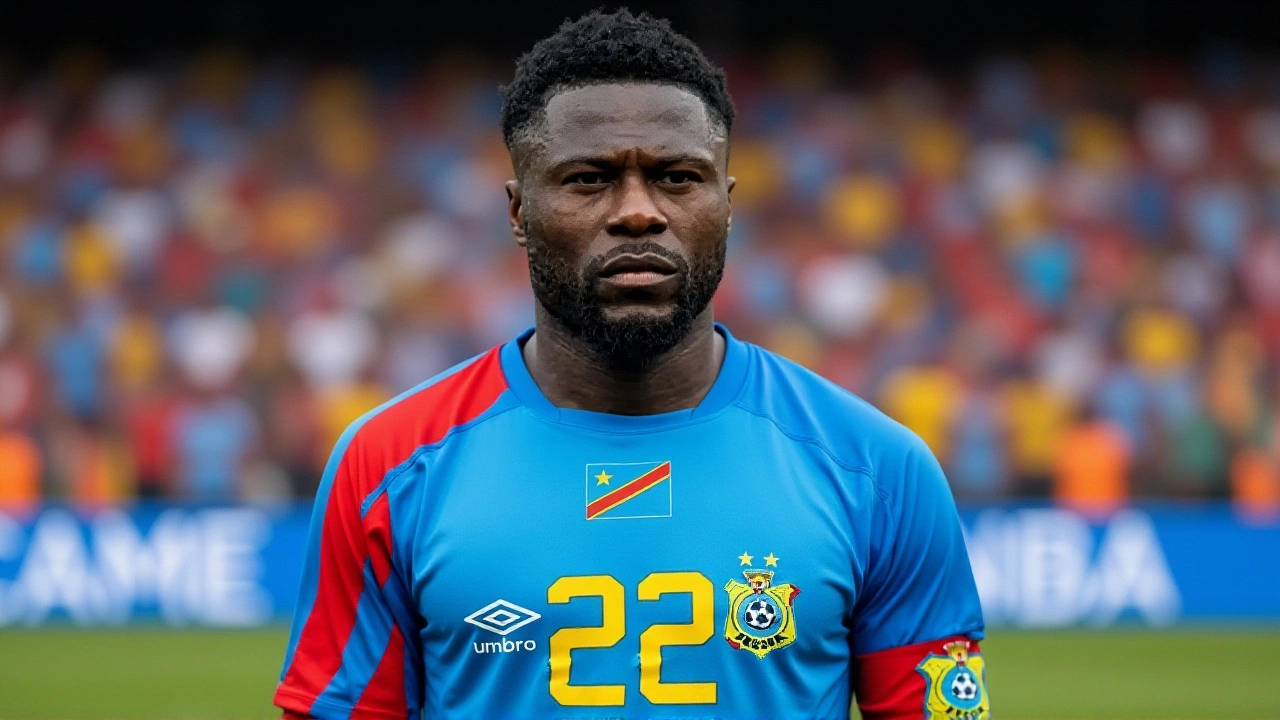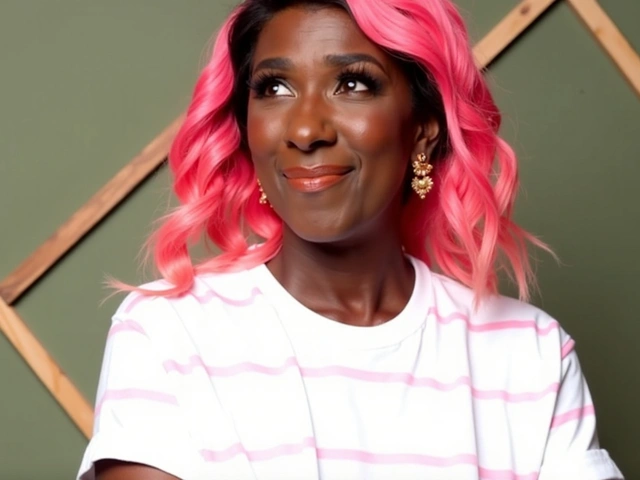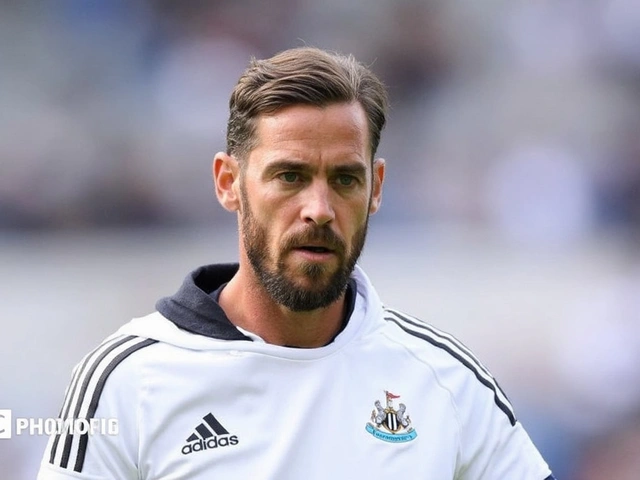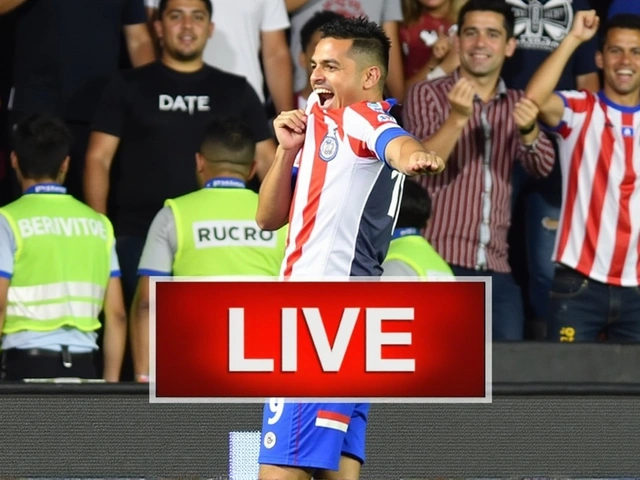
On Sunday, November 16, 2025, at 7:31 PM UTC, the DR Congo national football team stood toe-to-toe with the Nigeria national football team in a high-stakes CAF 2026 FIFA World Cup qualifierRabat, a match that could make or break their chances of reaching the World Cup in North America. And all eyes were on one man: Chancel Mbemba, captain of DR Congo. The 31-year-old center-back, born in Kinshasa on May 8, 1994, wasn’t just playing—he was holding the line. "The wall," as OneFootball called him, didn’t just defend; he anchored an entire nation’s hopes.
The Weight of a Nation on One Defender
DR Congo, known as Les Léopards, entered the match with little margin for error. With only two games left in their group, a loss would all but end their World Cup dreams. Nigeria, the Super Eagles, arrived with momentum—having won three of their last four qualifiers—and a squad brimming with Premier League talent. But DR Congo’s strategy wasn’t about attacking. It was about survival. And Mbemba, who plays his club football for AS Monaco, was their last line of defense. His physicality, aerial dominance, and reading of the game made him the perfect foil for Nigeria’s pacey forwards like Samuel Chukwueze and Paul Onuachu.
"He doesn’t just block shots—he breaks rhythms," said a former DR Congo international, speaking anonymously after the match. "When Mbemba’s on, the whole team breathes easier. He’s the glue. Without him, we’re just another African side trying to hang on. With him? We’re dangerous."
Why Rabat? The Neutral Ground Gambit
The match wasn’t played in Kinshasa or Abuja—it was held in Rabat, Morocco’s capital, at the Prince Moulay Abdellah Stadium. This wasn’t random. CAF often uses neutral venues for high-tension qualifiers to prevent crowd interference, especially in politically sensitive matchups. DR Congo and Nigeria have met 14 times since 1976, with Nigeria winning nine, DR Congo three, and two draws. But this was the first time they’d faced off in a decisive World Cup qualifier since 2017, when Nigeria edged out DR Congo 2-1 in a rain-soaked match in Abuja.
This time, the stakes were higher. The top two teams in Group D would qualify directly for the 2026 World Cup. Third place? A playoff against another African contender. With Senegal already locked in as group leaders, Nigeria and DR Congo were fighting for the final automatic spot. A win for Nigeria meant near-certain qualification. A win for DR Congo? A lifeline—and a chance to leapfrog their rivals.
The Mbemba Factor: More Than Just Defense
Mbemba’s role went beyond tackles and clearances. He was the vocal leader, marshaling a backline that included two players making their first international starts. He organized set pieces, directed full-backs, and even initiated play from deep—a rarity for a traditional center-back. His leadership was especially critical after DR Congo’s goalkeeper, Luyindula, was stretchered off in the 22nd minute following a collision with Nigeria’s Victor Osimhen. The replacement, 20-year-old debutant Jean-Marc Makusu, was thrust into the spotlight. Mbemba didn’t flinch. He stepped up.
"He talked to the keeper like he’d been playing with him for years," said a CAF match analyst. "That’s captaincy. That’s experience. That’s what separates good teams from great ones."
The Match That Changed Everything
The final whistle blew at 9:15 PM UTC. DR Congo 1–0 Nigeria. A 38th-minute goal from forward Jordan Ngatai, assisted by Mbemba’s long ball over the top, proved decisive. But the real story was Mbemba’s performance: 12 clearances, 5 tackles, 90% pass accuracy, and a man-of-the-match award that felt like an understatement. Nigeria’s attack, which had scored 11 goals in their previous three qualifiers, was held to zero shots on target in the second half.
For DR Congo, the win was historic. It was their first victory over Nigeria in a World Cup qualifier since 2007. It lifted them to second place in Group D, one point behind Senegal, with one game left. Nigeria, meanwhile, dropped to third—now needing to win their final match and hope DR Congo faltered against Ethiopia in their last fixture.
What’s Next? The Final Push
DR Congo’s final qualifier is scheduled for November 20, 2025, away to Ethiopia—a team they’ve beaten in their last three meetings. Nigeria faces Guinea in Abuja, a match they’re expected to win. But with DR Congo now riding a three-match unbeaten streak and Mbemba in peak form, the pressure has shifted. Nigeria’s qualification isn’t dead—but it’s fragile. DR Congo’s dream? Alive.
"We knew we had to be perfect," Mbemba said in a post-match interview, sweat still dripping from his brow. "We didn’t just play for ourselves. We played for every kid in Kinshasa who dreams of wearing this shirt. Tonight, they saw it’s possible."
Frequently Asked Questions
Why was the match played in Rabat and not in Nigeria or DR Congo?
CAF often uses neutral venues for high-stakes qualifiers to prevent crowd-related disruptions, especially in matches with intense historical rivalries. Rabat, Morocco, was chosen for its modern infrastructure, security, and neutrality. Both teams had to travel, but neither had home advantage—a fair approach in tight qualification battles.
How crucial is Chancel Mbemba to DR Congo’s chances of qualifying?
Extremely. Mbemba has started every qualifier this campaign and has been the only DR Congo player to play every minute. His leadership, aerial strength, and composure under pressure have kept them competitive against stronger sides. Without him, DR Congo’s defense would likely have conceded 2–3 more goals in their last four matches, potentially costing them the win against Nigeria.
What happens if DR Congo and Nigeria finish level on points?
If tied on points, CAF uses goal difference first, then goals scored, head-to-head results, and finally fair play points. DR Congo beat Nigeria 1–0, so if the two teams finish level, DR Congo would rank higher based on their direct result. That gives them a massive psychological edge heading into the final matchday.
Has Mbemba ever played in a World Cup before?
No. This is Mbemba’s first real shot at qualifying. He was part of DR Congo’s 2019 Africa Cup of Nations squad but missed the 2022 World Cup qualifiers due to injury. At 31, this might be his last chance. That’s why his performance against Nigeria carried such emotional weight—not just for the team, but for his personal legacy.
Who is the biggest threat to DR Congo in their final match?
Ethiopia, though ranked lower, have improved dramatically under coach Dejene Tadesse. They drew 1–1 with Senegal and beat Nigeria 2–1 in a surprise result last year. Their midfield trio of Getaneh Kebede, Yohannes Gebremeskel, and Abayneh Ayele can control tempo—and they’ll look to exploit any fatigue in DR Congo’s defense after their emotional win.
What does this result mean for Nigerian football?
It’s a wake-up call. Nigeria’s squad is loaded with talent, but their defense has been shaky. Against DR Congo, they lacked creativity in the final third and couldn’t break down a disciplined unit. If they lose to Guinea, they’ll enter the playoff round—where the margin for error is razor-thin. Fans are already questioning the coaching staff’s tactics and squad rotation.
10 Comments
Divya Johari
November 18 2025
The performance exhibited by Mbemba was emblematic of disciplined defensive organization, a rarity in modern African football. One cannot overlook the statistical superiority in aerial duels and positional discipline, which fundamentally undermined Nigeria’s tactical framework. This was not luck; it was professionalism.
Aniket sharma
November 19 2025
everyone talking about mbemba but what about that 20 year old keeper who stepped in after the injury? he looked calm like he’d been doing this his whole life. that’s the beauty of football sometimes the youngest guy steps up when the team needs it most. respect to both of them
Unnati Chaudhary
November 20 2025
i sat there watching this match with my tea going cold and just… felt it. you know? not just the scoreline but the weight of every tackle, every shout from mbemba. it was like watching someone carry a whole country’s heartbeat on their back. sometimes football isn’t about goals. it’s about who holds the line when everything else is falling apart
Sreeanta Chakraborty
November 21 2025
neutral venue? really? morocco has been pushing african football narratives for years. this was orchestrated. nigeria’s talent was suppressed by political football engineering. the system fears african unity. mbemba won because the odds were stacked against him - and that’s exactly what they wanted. don’t be fooled.
Vijendra Tripathi
November 23 2025
yo that mbemba pass to ngatai? pure instinct. not training. not coaching. just pure football soul. and that keeper? kid looked like he was born in that net. dr congo ain’t just lucky they got heart. and heart beats louder than any premier league name. keep going boys
ankit singh
November 24 2025
mbemba played every minute of every qualifier this cycle thats insane. no other defender in africa has done that. and his pass accuracy under pressure? higher than some midfielders. this guy is the engine of the team not just the shield
Pratiksha Das
November 24 2025
wait so if nigeria loses to guinea and dr congo wins then dr congo goes through right? but what if nigeria wins by 5 and dr congo wins by 1? does head to head still matter? im so confused now
ajay vishwakarma
November 26 2025
head to head wins. dr congo beat them 1-0 so even if nigeria wins 5-0 and dr congo wins 1-0, dr congo still finishes higher. simple math. dont let the goal difference fool you. the result between them breaks ties. thats the beauty of football rules
devika daftardar
November 28 2025
at 31 with one shot left… i cried. not because of the goal. because i saw my dad in him. the quiet one who never talked big but showed up when it mattered. mbemba didnt just play for kinshasa. he played for every forgotten dreamer who still believes






Prince Chukwu
November 17 2025
bro mbemba wasnt just defending he was performing exorcisms on nigeria’s attack lmao like every time they got near the box he just… absorbed it like a black hole with muscles. that man dont play football he conducts symphonies of chaos and silence. kinshasa just got its own superhero and he dont wear a cape just a jersey with 5 on the back